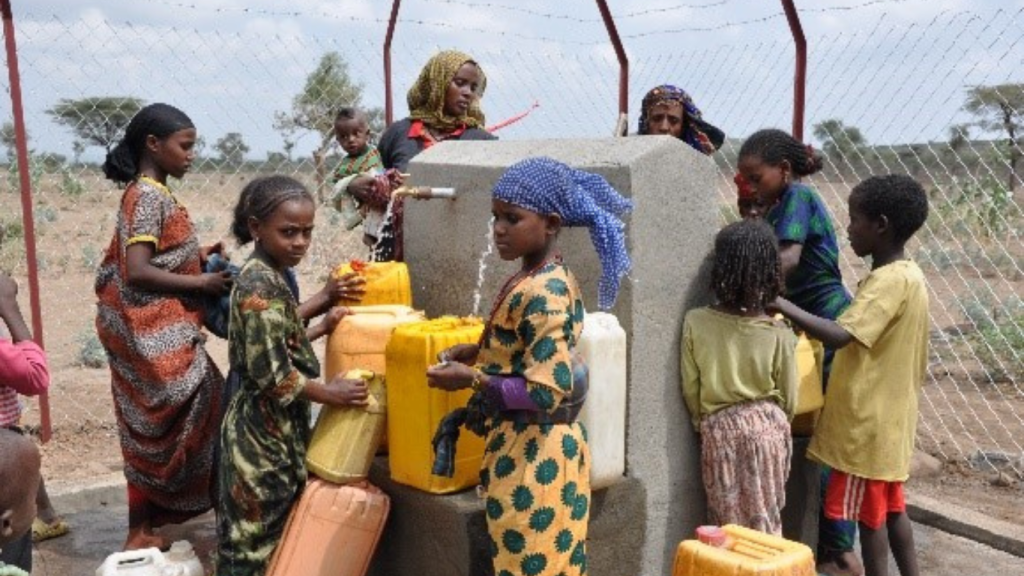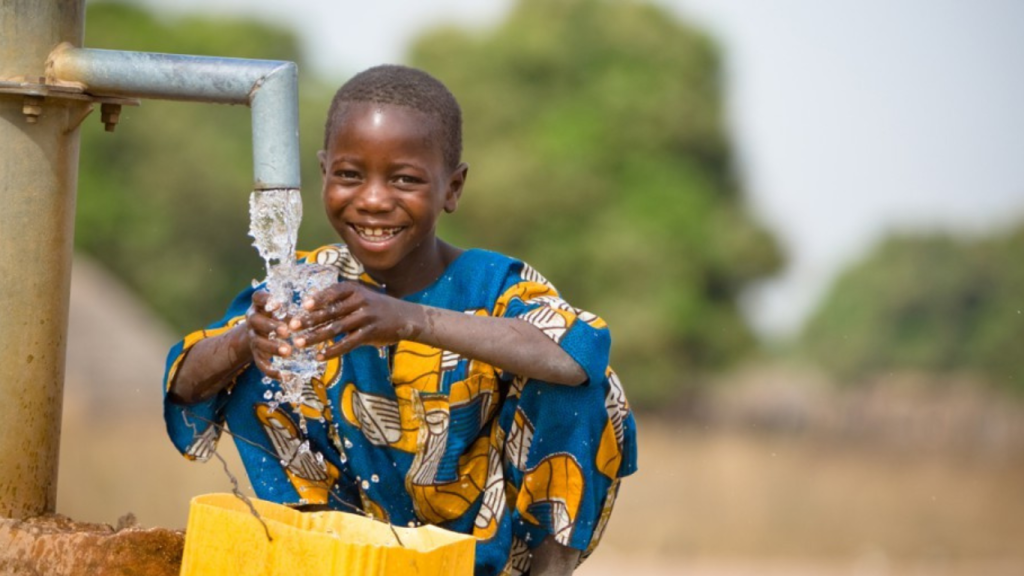
Water Sanitation and Hygiene (WASH) in Emergencies Program
Hope for Refugees International recognizes the vital importance of water in crisis, conflict, and humanitarian settings. Our WASH program extends beyond providing access to clean drinking water and promoting hand washing; it embraces the holistic role water plays in human life and survival. Water is the cornerstone of agriculture, food security, nutrition, health, livelihoods, education, and gender equality. It is the linchpin that enables us to address the multifaceted needs of the communities we serve.
In crisis-affected areas, access to safe water and sanitation is often severely limited or non-existent. This scarcity exacerbates food insecurity, undernutrition, poor health, and economic instability. Furthermore, women and girls disproportionately bear the burden of water collection, which can compromise their safety and education.

Our WASH program seeks to

- Ensure access to clean and safe drinking water for all.
- Promote hygiene and sanitation practices.
- Empower women and girls through improved water accessibility and safety.
- Strengthen water governance, environmental sustainability, and financing mechanisms.
- Enhance the resilience of communities to water-related challenges, including climate change.
Hope for Refugees International’s Water, Sanitation, and Hygiene program is a multifaceted approach to address the pressing challenges of water security in crisis and conflict settings. By engaging communities, empowering women and girls, fostering partnerships, embracing innovation, and recognizing the interconnectedness of water with other vital aspects of life, we aim to build resilience, promote equity, and improve the lives of the most vulnerable populations we serve. Together, we will make water a source of hope, dignity, and sustainable development for all.
Key Program Strategies
Roles of Key Stakeholders improving WASH in Emergencies
Community Engagement: Collaborate closely with communities to co-create tailored WASH solutions, promote behavior change, and establish community-led management of water resources and sanitation facilities.
Gender Empowerment: Prioritize the inclusion of women and girls in decision-making processes, equipping them with leadership skills, and ensuring their safety during water collection.
Stakeholder Partnerships: Work in tandem with national and local governments, the private sector, and other stakeholders to improve water governance, sustainability, and financing.
Hybrid Approaches: Implement a blend of traditional and innovative solutions to address water security challenges, such as rainwater harvesting systems and advanced water monitoring technologies.
Integration with Food Systems and ClimateChange: Embed Water+ initiatives within broader programming focused on food systems and climate change adaptation, ensuring the protection of watersheds and water resources essential for long-term community sustainability.
Communities: Act as active participants in the design, implementation, and maintenance of WASH solutions. Communities are central to ensuring the sustainability and effectiveness of intervention.
Young People: Mobilize and engage young people in raising awareness, promoting behavioral change, and advocating for improved WASH services.
Women and Girls: Empower women and girls to take on leadership roles, safeguard their dignity and safety, and become active agents of change within their communities.
Government Authorities: Collaborate with national and local governments to strengthen water governance, regulations, and financing mechanisms, ensuring equitable access for all.
Private Sector: Partner with the private sector to leverage resources, innovative technologies, and expertise to advance WASH goals.